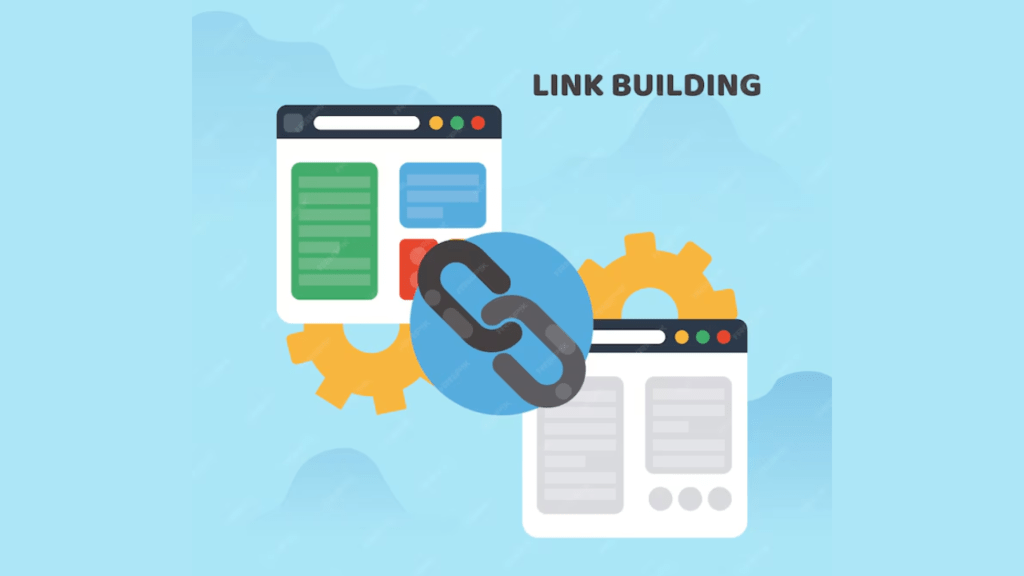
Backlinks are a crucial part of SEO, acting as endorsements from other websites. They tell search engines your site offers valuable content, boosting both rankings and visibility. But how do you go about earning these all-important backlinks effectively? This guide delves into actionable strategies to help you build a robust backlink profile that drives organic traffic and elevates your online presence.
What Are Backlinks and Why Do They Matter?
Links from one website to another are called backlinks, or inbound links. They function as “votes of confidence,” signaling to search engines that your content is trustworthy and valuable. Here’s why they are important:
- Improve Search Rankings: Backlinks are one of Google’s most significant ranking factors. High-quality links from reputable sites can boost your website’s visibility in search engine results pages (SERPs).
- Drive Referral Traffic: When authoritative websites link to your content, their audience might click the link, leading to increased traffic for your site.
However, not all backlinks are created equal. Search engines evaluate links based on factors like domain authority, relevance, and the quality of the linking website. A few authoritative backlinks can outweigh hundreds of low-quality links.
Effective Strategies for Building Backlinks

1. Create High-Value Content That Attracts Links Naturally
Any effective backlink strategy starts with outstanding content. Websites link to pages that provide value to their readers. Here are some tips to make sure your content is unique:
- Focus on Quality: Publish well-researched, in-depth articles that solve specific problems or answer pressing questions in your niche.
- Be Original: Unique content like original research, case studies, or proprietary insights tends to attract citations.
- Visual Appeal: Infographics, charts, and videos are highly shareable and increase the likelihood of earning backlinks.
For example, a fitness blog could publish a detailed guide titled “The Ultimate 30-Day Fitness Challenge,” complemented by custom visuals to make it more engaging.
2. Leverage Guest Blogging Opportunities

Guest blogging allows you to contribute to authoritative websites while earning backlinks in return. To make the most of guest blogging:
- Research Target Websites: Identify blogs in your niche with engaged audiences.
- Pitch Relevant Topics: Tailor your content ideas to align with the host website’s audience and tone.
- Incorporate Natural Links: Include a link to your website within the body of the post or in your author bio.
Ensure your guest posts are valuable and high-quality, as this reflects your expertise and boosts your credibility.
3. Use Broken Link Building to Your Advantage
Broken link building is a clever strategy where you identify broken links on authoritative websites and suggest your content as a replacement. Here’s how it works:
- Find Broken Links: Use tools like Ahrefs, SEMrush, or Check My Links to identify broken links in your niche.
- Create Relevant Content: Ensure you have content that aligns with the broken link’s topic.
- Reach Out to Webmasters: Politely inform them of the broken link and offer your content as a replacement.
This approach not only helps you gain backlinks but also builds relationships with industry professionals.
4. Get Listed in Directories and Resource Pages
Reputable online directories and resource pages can provide valuable backlinks and steady referral traffic. To get featured:
- Target High-Quality Directories: Focus on niche-specific directories relevant to your industry. Avoid spammy, low-quality directories that could harm your SEO.
- Find Resource Pages: Search for “top [industry] resources” or “best [topic] tools” and pitch your content if it adds value.
For instance, a tech blog with a detailed software comparison guide could pitch to resource pages listing top tech tools.
5. Collaborate with Influencers in Your Niche

Influencer collaborations can amplify your reach and earn valuable backlinks. Here’s how:
- Build Relationships: Engage with influencers through social media, comments, or email.
- Create Mutual Opportunities: Offer to collaborate on projects like webinars, co-authored content, or promotions that benefit both parties.
- Leverage Their Reach: Influencers often share collaborative content with their audience, increasing the chances of earning backlinks.
6. Publish Original Research or Conduct Surveys
Data-driven content like research reports, industry statistics, or surveys can serve as link magnets. Websites often cite original data in their content, providing you with backlinks.
- Focus on Timely Topics: Research trending issues or pressing challenges in your field.
- Promote Your Findings: Share your results with journalists, bloggers, and industry leaders who may link to your content.
For example, a marketing agency could publish a report on “Top Digital Marketing Trends for 2024,” attracting links from various industry blogs.
7. Promote Content Through Social Media and PR

Social media and PR can significantly enhance the visibility of your content, increasing the likelihood of earning backlinks.
- Share on Social Platforms: Regularly post your content on platforms like LinkedIn, Twitter, and niche-specific forums.
- Engage in Online Communities: Actively participate in discussions on Reddit, Quora, or relevant Facebook groups.
- Use PR Outreach: Pitch your content to journalists or bloggers who cover your niche.
Common Backlink Mistakes to Avoid
While building backlinks, avoid these pitfalls:
- Over-Optimizing Anchor Text: Excessive use of exact-match keywords may result in penalties.
- Relying on Link Farms: Links from low-quality or irrelevant sites can harm your SEO.
- Ignoring Relevance: Ensure your backlinks come from websites related to your industry or niche.
- Neglecting Link Diversity: Build links from various domains to create a balanced backlink profile.
FAQs
How can I identify high-quality backlinks?
High-quality backlinks come from authoritative websites with relevant content and a good domain authority score. Use tools like Moz or Ahrefs to evaluate link quality.
Is it safe to buy backlinks?
No, buying backlinks violates Google’s guidelines and can result in penalties. Focus on earning links organically through content and outreach.
What’s the difference between do-follow and no-follow links?
Do-follow links pass SEO value, while no-follow links do not. However, no-follow links can still drive traffic and improve brand visibility.
How often should I update my backlink strategy?
Regularly review your backlink profile, monitor for harmful links, and adapt your strategy to align with industry trends and algorithm updates.
Can internal links enhance SEO?
Yes, internal links help distribute link equity across your site and improve user navigation, which can positively impact SEO.
How long does it take for backlinks to impact rankings?
Results vary but can take several weeks to months, depending on the link’s quality and your site’s overall authority.
Conclusion
Building backlinks is a continuous effort that combines creativity, strategy, and persistence. By focusing on high-quality content, leveraging guest blogging, and using outreach techniques, you can steadily grow your backlink profile and enhance your SEO performance. Begin implementing these methods today, and you’ll see the benefits in increased rankings, traffic, and online authority.







